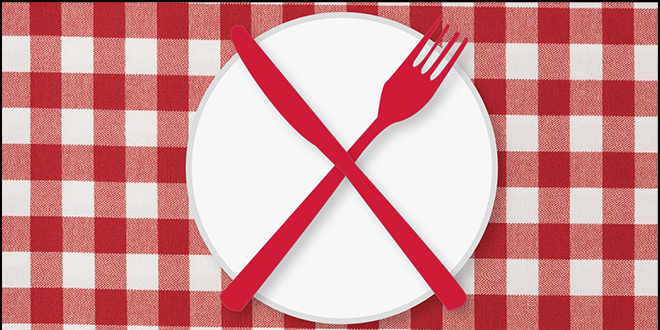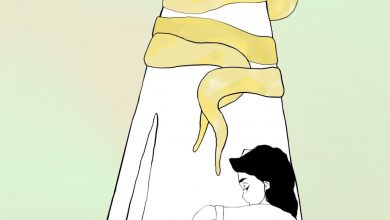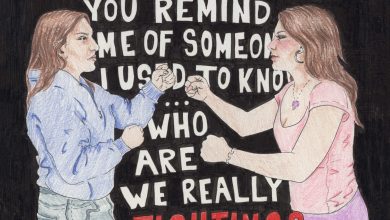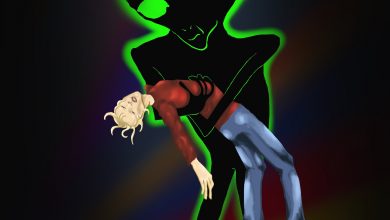Thanksgiving, Family and Eating Disorders

Design by Jenny Dodge
Content warning: eating disorders
For many Americans, Thanksgiving is an uncomfortable and bittersweet holiday. While some people look forward to eating a home-cooked meal and indulging in deep conversation with their relatives, others dread the prospect of sharing an evening with people whom they would never spend time with — were they not related to each other by blood. And, given the historical background of Thanksgiving, the choice to celebrate the holiday itself is controversial. For those who struggle with an eating disorder (ED), a complicated relationship with food can also make Thanksgiving especially emotionally taxing.
Two years ago, during the peak of my bulimia nervosa, 17-year-old me sat somewhere in the San Fernando Valley at a huge table to enjoy a Thanksgiving meal alongside a college friend and her extended family. Because I am an out-of-state student, I haven’t gone home for Thanksgiving since I started college at UCLA.
That year, being away from my family added yet another layer of complexity and pain to my overall Thanksgiving experience, given that I lacked my usual system of emotional support. The prospect of having to eat a copious amount of food (regardless of how healthy, flavorful and enjoyable it may be) can be terrifying for people in the ED community.
In my experience, the struggle to balance emotional and physical wellness during Thanksgiving weekend — and every other day — felt unending and impossible, especially when the expectation was to be well-fed and feel happy (or at least okay) about it. The pressure to eat and keep the food down in front of so many people felt nauseating, so I toyed with the idea of making up some kind of medical excuse and not eating at all. Instead, I powered through several courses of delicious Thanksgiving dinner and forced myself to be at peace with my dietary choices.
But the nagging voice of my bulimia interpreted this kind of culinary experience as a form of compulsive binging. Soon thereafter, I was plagued with guilt and found myself purging the glorious calories I had consumed in the name of giving thanks.
Although I was unaware in that moment, there are millions of people who share experiences of this sort. Disordered eating behaviors are triggered by things like resurfaced trauma, physical and emotional violence, and outside criticism of one’s body or appearance — all of which can be heightened by interactions with abusive family members. I’ve found it incredibly traumatic to share the most vulnerable parts of myself with those who are complicit in perpetuating my eating disorder during annual family get-togethers and holidays.
I’ve learned that it’s okay to be forthright about my struggle with bulimia, and also honest with myself about when I need space from relatives, no matter how much I love them. However, this process takes time, and I acknowledge that not everyone has reached this headspace or point in their journey of self-care and recovery. Additionally, those who lack access to comprehensive professional treatment for their eating disorder(s) may not have the tools to navigate the Thanksgiving holiday in a healthy and intuitive manner.
As a first-year in college, I had not yet shared this “deep dark secret” with any of my relatives, nor had I confided in my close friends about my illness. In between trips to the bathroom scale, followed by minutes spent with my head face-down over the toilet, I found time to fake a smile and maintain light conversation with the people around me. But on the inside, I was screaming for an escape, yearning for a peaceful end to the battle erupting within me.
Finally, after 14 months of weekly one-on-one therapy and semi-regular disordered eating group therapy, I’ve found the time and space to heal. With Thanksgiving coming up, my advice to others who wrestle with feelings of inadequacy, self-hatred and body shame is to find a family member (or friend), preferably outside of the ED community, to confide in during the holidays and reach out to for reassurance and emotional support. They may be able to help steer conversations away from dieting, divert attention from the contents of your plate (or lack thereof), and talk to you one-on-one should anyone make passive-aggressive comments about your appearance (weight gain or loss, etc).
And for those who have yet to come to terms with the reality of their eating disorders, please know that you are not alone. The journey to self-acceptance and recovery is as ridden with self-doubt and setbacks as it is with growth and empowerment. We are our own harshest critics, and should instead cultivate an attitude of forgiveness and compassion towards ourselves.
On Thursday I’ll return to the Valley for Thanksgiving, this time equipped with the tools of self-knowledge and emotional growth in order to not only get through, but enjoy the food-ridden holiday in the presence of others.
If you are in need of support, a list of eating disorder hotlines can be found here.




